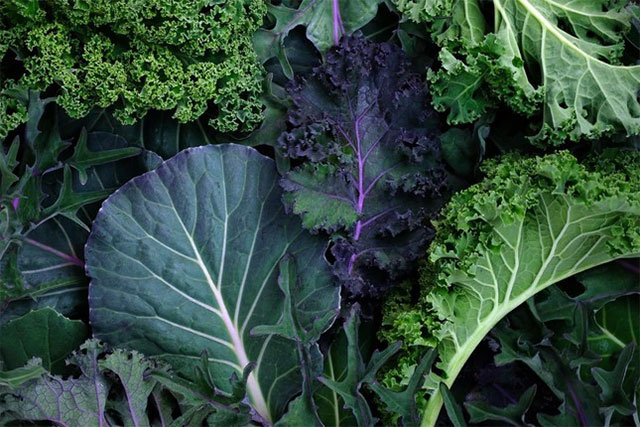Experts shocked by discovery of extremely toxic chemicals in kale
Scientists have discovered a toxic chemical that can cause cancer in kale - a vegetable known to have many benefits for human health.
For a long time, kale has been praised as a healthy food for humans. Containing many antioxidants and minerals such as iron, manganese, calcium, potassium, etc., kale brings many benefits, including: providing many vitamins and energy that are beneficial to the body with few calories, preventing aging, good for bones, avoiding the risk of cardiovascular disease, supporting the fight against cancer, improving eyesight, etc.
However, the new discovery surprised experts because kale is more toxic than people thought .

Kale is often touted as a nutritious, healthy vegetable.
Accordingly, the British non-profit organization Alliance for Natural Health collected kale samples from grocery stores across the US for testing. The results showed that 7/8 samples had worrying levels of per- and polyfluoroalkyl substances (PFAS) .
More alarmingly, kale certified as 'USDA organic' by the US Department of Agriculture has higher levels of PFAS than conventional kale.
PFAS are often referred to as 'forever chemicals' because they do not break down naturally and are found in soil, water and air worldwide.
Since the 1950s, this synthetic chemical has been widely used in packaging, clothing, carpets, firefighting foam, and even toilet paper.
Previous studies have linked the chemical to cancer and other health problems such as immune system disorders, liver disease, kidney disease, birth defects and fertility.
Scientists are still learning about PFAS, including how best to detect, measure and remove them from air and water, as well as determining their long-term effects.
Robert Verkerk, founder of the Alliance for Natural Health, said the discovery left researchers 'stunned' because they had previously expected low levels of the chemical .
New research shows PFAS levels as high as 250 parts per trillion. While there are no limits on PFAS in food in the United States, the U.S. Environmental Protection Agency (EPA) has determined that no amount of exposure to PFAS compounds in drinking water can be considered safe.
Samples of kale have now been sent to an EPA-certified laboratory for further testing. The FDA previously analyzed kale from 2019 to 2021 and found no evidence of PFAS contamination.

The results of the kale study shocked scientists.
The cause of the kale contamination is unknown, but Mr. Verkerk suspects the vegetable may have been irrigated with PFAS-contaminated water or grown in fields with contaminated mud.
'It's pretty scary and there's no simple solution,' Verkerk said, calling on the US Food and Drug Administration (FDA) to implement a better PFAS testing program for the entire US food supply.
- Chemical substances 'not strange' cause gender change
- These are the 5 most horrible chemicals in history
- Suspecting toxic chemicals ... causing infertility on clothes
- Warning: Food packaging contains more than 175 dangerous chemicals
- List of extremely toxic food preservatives
- A strange cloud of toxic chemicals in the UK appeared
- Harm of chemicals on 5 parts of the body
- Sucking cushions can make children poisoned
- Dryer for clothes that causes ... cancer
- New environmental pollution control tool
- 25,000 barrels of undissolved pesticides on the seabed
- Things you need to know about Phthalates
 13 causes of non-itchy rash
13 causes of non-itchy rash How the mouse with human ears changed the world?
How the mouse with human ears changed the world? The truth about 'fried rice syndrome!
The truth about 'fried rice syndrome! What is dental implant?
What is dental implant?